Indonesian mothers go to court over tainted cough syrup scandal
As the class-action suit over contaminated medicine begins, two mothers share why they joined the legal action and how they hope to achieve justice for their children.
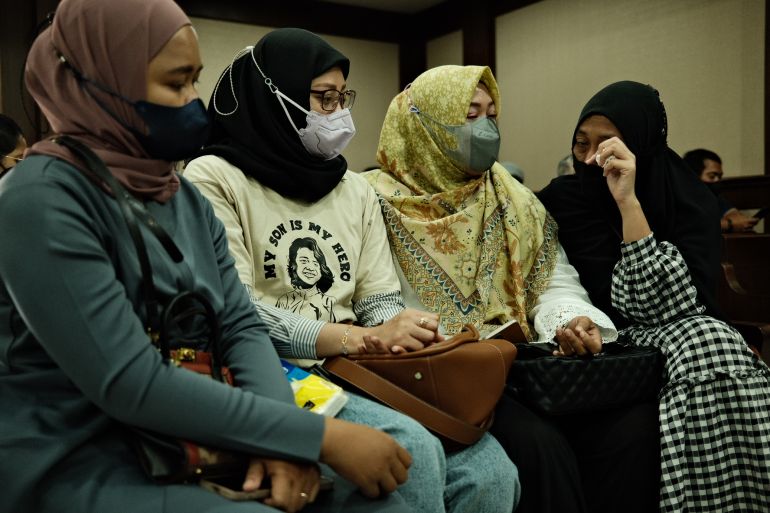
Jakarta, Indonesia – Five-year-old Shena has been in hospital since September. Her eyes move slowly when her mother calls her name but she is otherwise almost completely unresponsive.
Her mother, Desi Permata Sari, says Shena’s problems started when she fell ill with a fever. Concerned, she took her daughter to the emergency department of a Jakarta hospital. Doctors conducted blood tests and sent them home with paracetamol syrup.
Keep reading
list of 4 itemsIndonesian nickel smelter resumes productions after deadly riot
Police officers on trial over Indonesia stadium stampede
Two workers killed after clashes at Indonesian nickel smelter
“I gave her the medicine for two days, then she threw up and also said that she couldn’t urinate. I initially thought she might be dehydrated,” Desi said.
“She was a healthy, smart girl. Suddenly this all happened just because of medicine. I am devastated.”
Shena was admitted to the paediatric intensive care unit. Her mother said she was a happy, talkative child who liked swimming and reading, and had even learned to recite the Quran at the age of four.
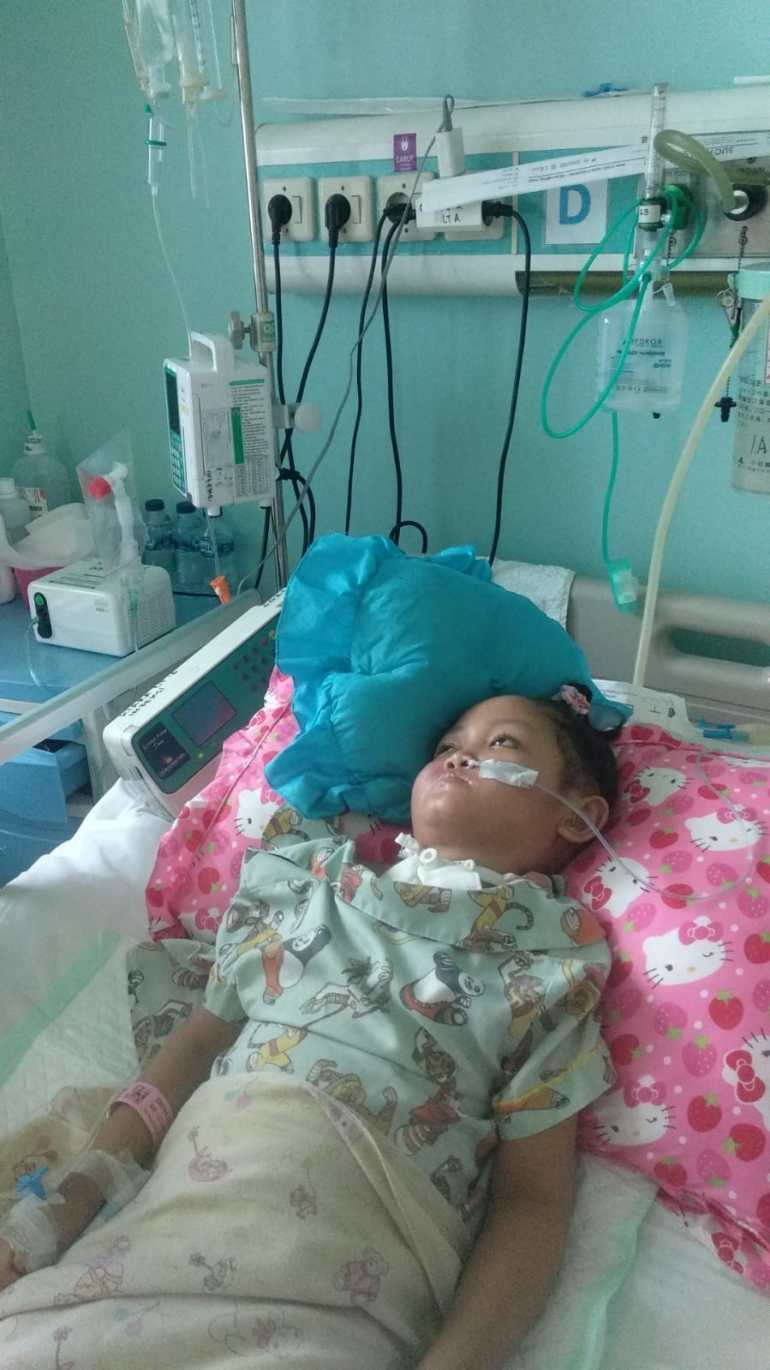
Now, she is fighting for her life.
“Earlier on, she had heavy internal bleeding. She was having seizures, and blood was coming out from her nose and mouth, and sores all over her scalp. She was in a coma for one-and-a-half months. She was bleeding nonstop for three weeks and she was just skin-and-bone,” Desi said.
“Which mother’s heart wouldn’t break…to see my healthy girl who used to run around… now she can only lie down and she needs a breathing aid. They had to make a hole in her throat. She drinks through a tube.”
This week, Shena cried during a physiotherapy appointment. It was the first time in months her mother had heard her make any sound.
“I was so grateful that she can cry. It made me so happy because otherwise her condition is unresponsive.”
The medical emergency has had a devastating effect on the whole family.
With Desi caring for Shena in hospital and her husband working long hours as a security guard, and also spending most of his spare time by his daughter’s bedside, their son has had to move in with a relative.
The family has drained their savings to pay for Shena’s medical care, and the cost of travelling to and fro from the hospital. He earns about $300 a month. They have started eating smaller meals since Shena was admitted to hospital, to save money.
“My husband doesn’t rest. He goes back and forth to work, then he comes here to look after Shena. Our savings are gone. She needs so many things which are not covered by public health insurance,” she said.
“In the beginning, I just wished to be hit by a car because I’m so devastated. But I will fight for her, no matter how long it takes. I have to fight for my daughter.”
‘I will never move on’
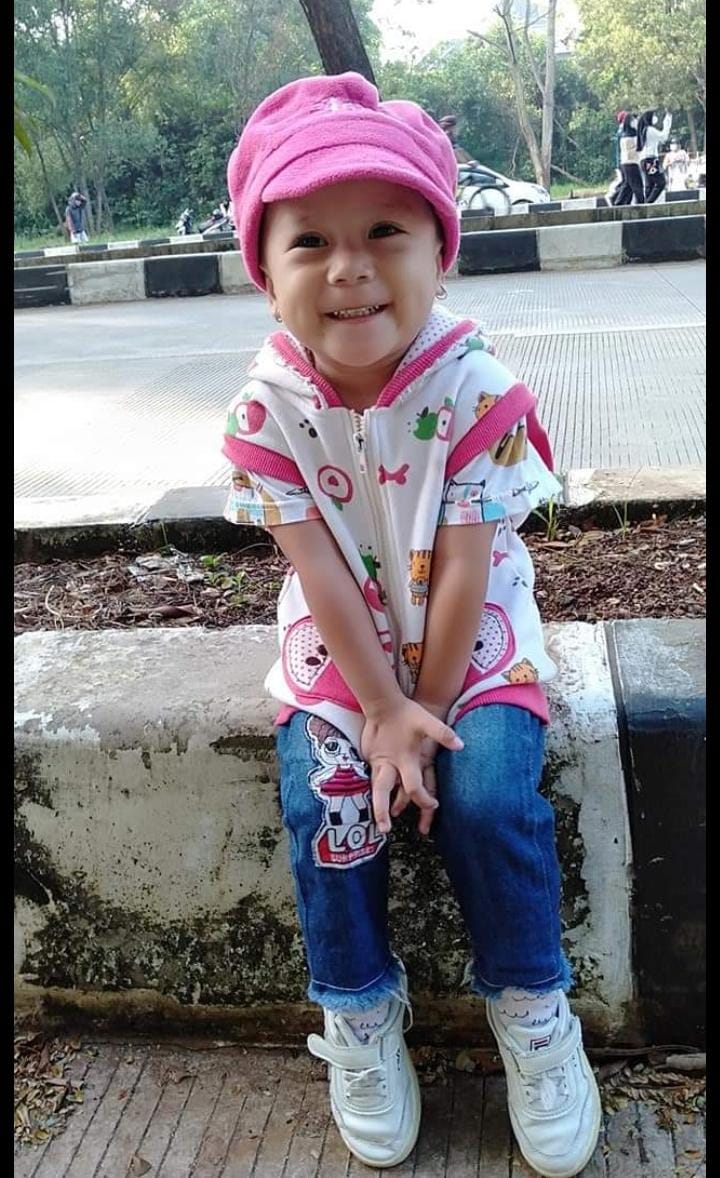
Desi and her husband are part of a class action suit launched by 25 families, suing government agencies and pharmaceutical companies after their children became seriously ill from taking contaminated medicines.
Almost 200 children have died from acute kidney injury since last year and more than 100 have been injured.
Authorities later found two ingredients typically found in antifreeze and brake fluids – ethylene glycol and diethylene glycol – were linked to the children’s conditions. The scandal in Indonesia came as dozens of children in The Gambia were reported to have died after taking similarly contaminated products.
The families are suing the health and finance ministries, the drugs regulator, and several pharmaceutical companies and suppliers.
One of the lawyers for the parents, Tegar Putuhena, told Al Jazeera they also want the Ministry of Health to classify the acute kidney injury outbreak caused by the syrups as an “extraordinary event”, so all treatment expenses would be covered by the government.
“For those children still being treated now, there are many treatments that are not covered by public health insurance. The government is turning a blind eye to it as if they have provided everything,” he said.
At the first hearing on Tuesday, a procedural step where administrative documentation was checked, Desi sat in the packed courtroom with three other mothers.
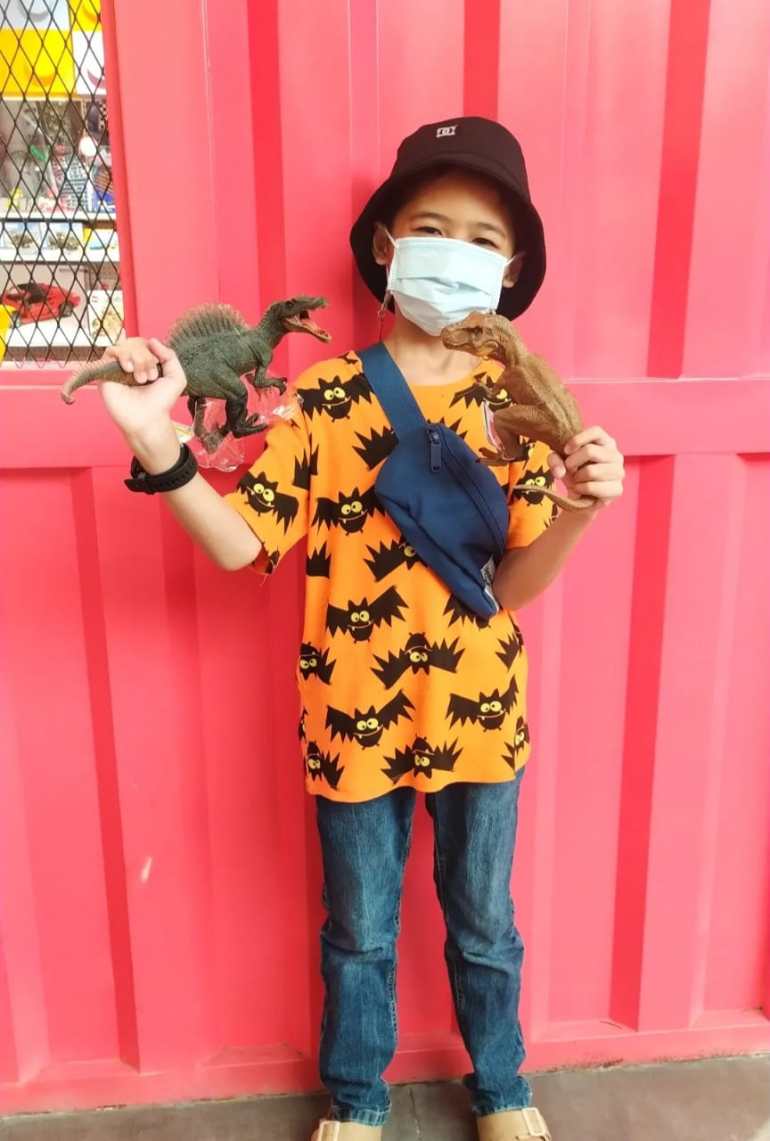
They held hands and wept together as they waited for proceedings to begin.
Among them was Siti Suhardiyati, the mother of Umar Abu Bakar who died two months before his third birthday and Solihah, the mother of four-year-old Azqiara who loved to skate and sing. She died just days after ingesting the toxic medicine.
And Safitri Pusparani, 42, wearing a yellow shirt with the words “my son is my hero” printed on it.
Panghegar died in October.
She showed Al Jazeera a video of him, taken a month before his death. It was Panghegar’s eighth birthday.
“It’s my birthday, yippee!” he squealed, grinning at the camera.
“I don’t want my son to just be a statistic without action. He is my hero. We need to make changes so this doesn’t happen again,” Safitri said.
“As a mother, you can’t ask, when will you stop being sad? When will you move on? I will never move on. With time, I don’t think it will hurt any less but I will learn to adapt to the reality, that I am a mother who lost her son.”
Several of the parents initially expressed doubts about the class action. Many are still deep in their grief or caring for children who now have debilitating injuries.
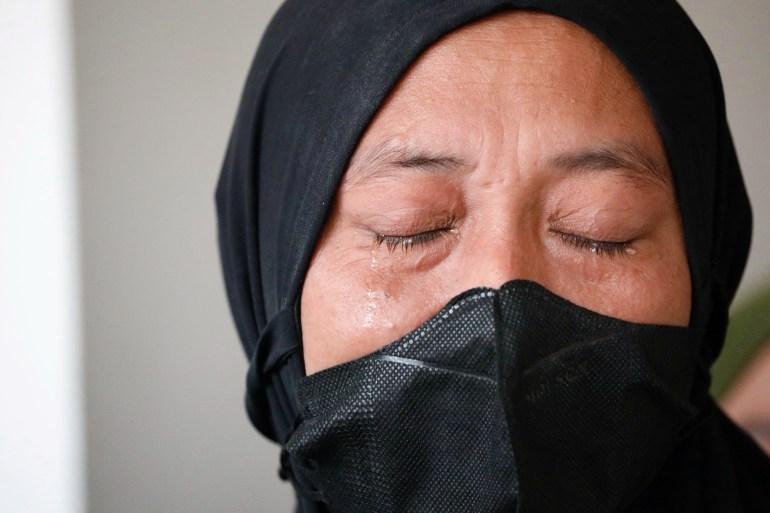
But Safitri is convinced it is the right path and the parents hope other affected families will join them.
“This is probably going to be a long road and it probably won’t be an easy one. Whatever the risk, we have to be strong and we have to see it through,” she said.
“It is not just about my child. If we keep quiet, other children may be victims in the future.”